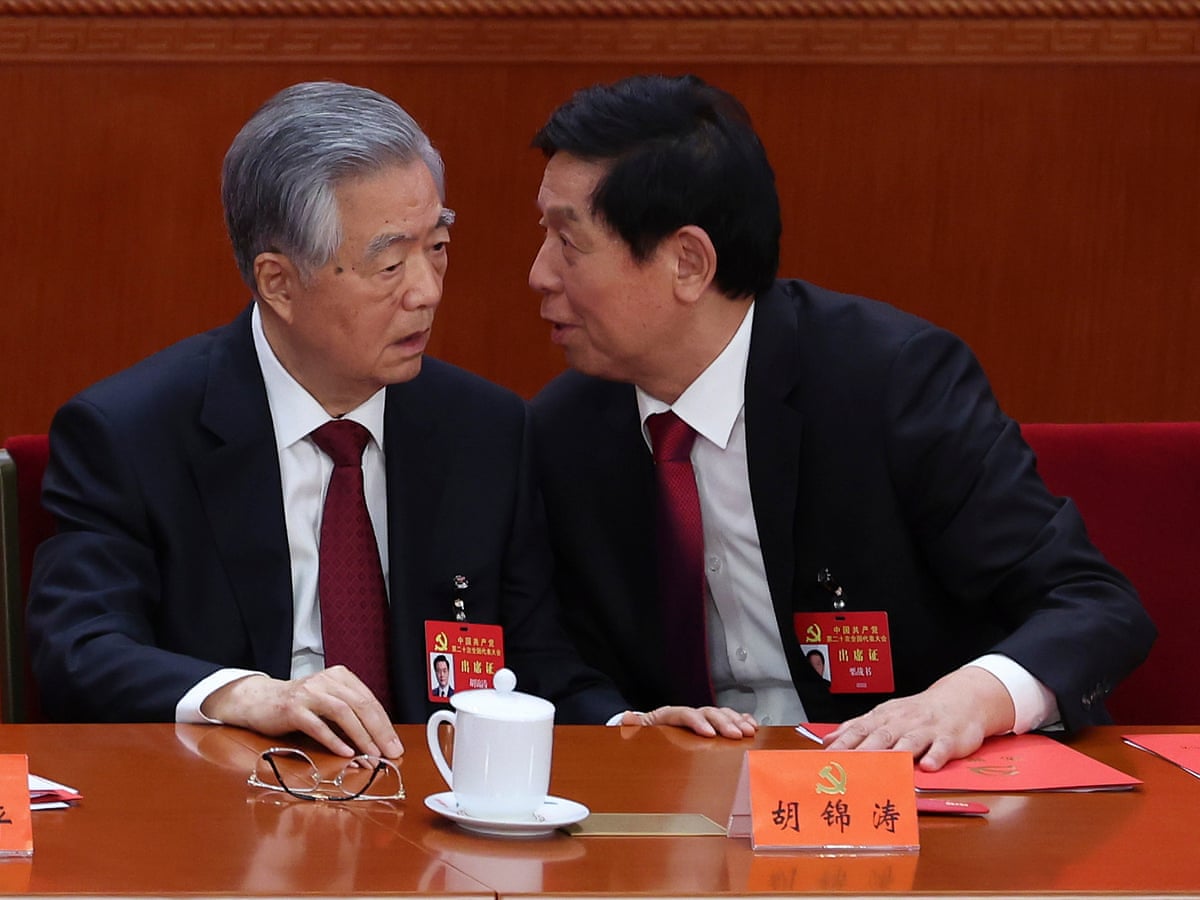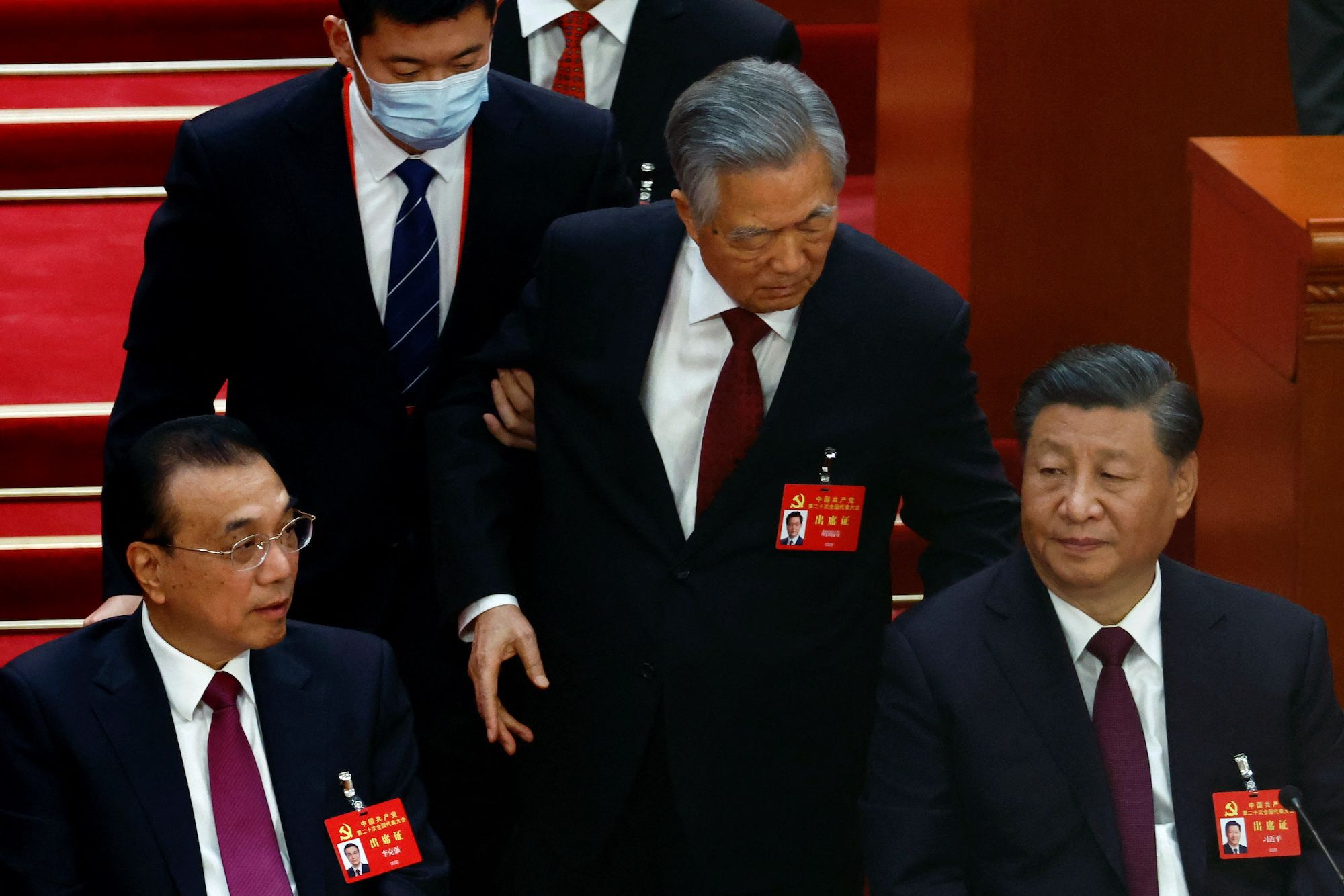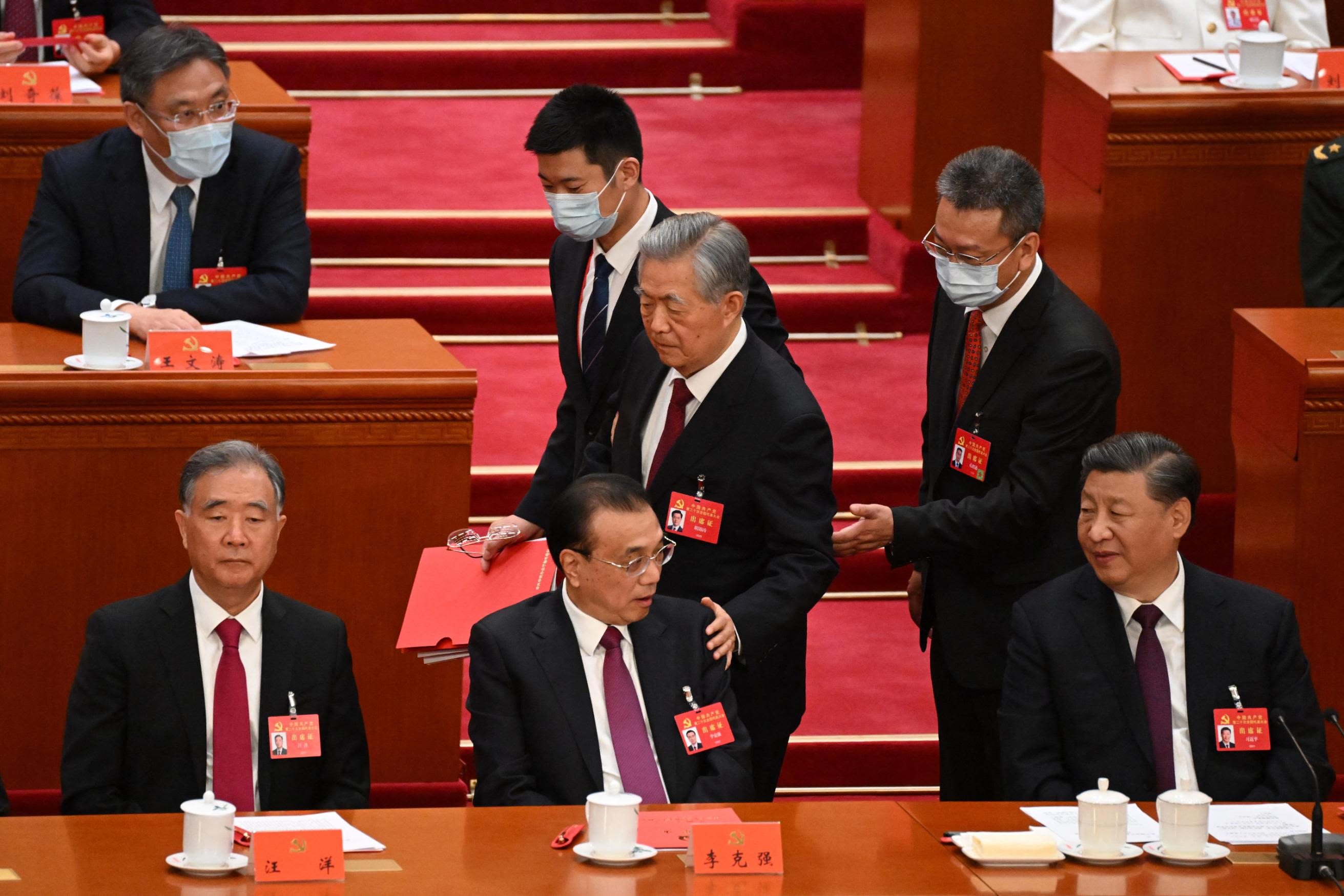How China Can Escape the Middle-Income Trap and Reclaim Double-Digit Growth with Clean Energy
As China stands at the crossroads of economic maturity and geopolitical complexity, the question arises: can it reignite the double-digit growth that once defined its rise without sacrificing sustainability? The answer may lie in bold political and economic reforms that enable a clean-energy-powered transformation. Escaping the middle-income trap—a condition where a country stagnates after reaching moderate income levels—requires more than tweaking the status quo. It demands a new developmental model rooted in innovation, green technology, and governance reform.
Understanding the Trap
The middle-income trap occurs when rising wages and costs erode competitiveness in low-end manufacturing, but a country lacks the institutional, technological, or human capital base to transition to high-value industries. China is perilously close to this scenario. Its once-unbeatable export machine now faces aging demographics, rising debt, environmental degradation, and geopolitical decoupling.
Yet, China's state capacity, vast domestic market, and technological progress mean that it's not stuck—yet. But escaping will require deep shifts.
I. Economic Reforms: From Imitation to Innovation
1. Restructure the Growth Model
China must pivot from investment-led growth to consumption- and innovation-driven development. Infrastructure has diminishing returns. The focus should now be on quality of growth, not quantity.
-
Boost household incomes through social safety nets, pension reform, and rural land rights reform, so people spend more.
-
Shift capital from state-owned enterprises (SOEs) to more productive private sector players, especially in high-tech and green sectors.
-
Open financial markets further to allocate capital more efficiently and reduce reliance on shadow banking and local government debt.
2. Accelerate High-Value Innovation
Innovation is the only path to climb the global value chain. China has made progress in AI, EVs, and quantum computing, but to leap ahead, it needs systemic support.
-
Invest in basic research, not just applied tech. The U.S. university system still beats China in foundational innovation.
-
Encourage entrepreneurial ecosystems beyond Tier-1 cities by decentralizing capital and talent incentives.
-
Protect intellectual property rights (IPR) to attract foreign and domestic R&D.
3. Decarbonize the Economy with Industrial Policy
To become a global leader in clean energy and climate tech, China must go beyond exporting solar panels and EVs. It must internalize clean energy across its economy.
-
End coal addiction by retiring inefficient plants and redirecting subsidies toward renewables.
-
Electrify transportation and industry, from EV adoption to green hydrogen in steel and cement.
-
Build a smart grid that can handle renewable intermittency, energy storage, and real-time carbon pricing.
II. Political Reforms: From Control to Capability
While China doesn’t need Western-style democracy to escape the trap, it does need more adaptive and accountable governance.
1. Empower Local Governments with Autonomy + Accountability
Centralized micromanagement from Beijing is inefficient for a diverse economy.
-
Experimentation zones (like Shenzhen in the 1980s) should be revived for testing labor, tax, and green policy innovations.
-
Tie local officials’ promotion not just to GDP but to innovation, emissions reduction, and social equity outcomes.
2. Strengthen the Rule of Law and Regulatory Transparency
Foreign capital and domestic entrepreneurs need predictability and fairness.
-
Transparent regulatory frameworks will reduce risk premiums and encourage long-term investment.
-
Independent courts and dispute resolution systems are vital to trust in contracts and private property.
3. Enhance Political Feedback Mechanisms
One-party rule can survive if it's responsive. That means:
-
Allowing civil society to flourish in controlled spaces, especially around local governance, environment, and consumer rights.
-
Strengthening the media and think tanks that provide feedback on policy implementation without threatening core authority.
III. Demographic and Social Reforms: Human Capital is the New Oil
China’s population is shrinking. Labor is no longer cheap, and productivity gains must now come from human capital.
1. Overhaul the Hukou System
China’s household registration system is outdated and hampers labor mobility. Reforming it would unleash urban consumption and workforce dynamism.
2. Expand Access to High-Quality Education
From vocational training to university STEM programs, China must build a globally competitive talent base. Equitable education access across rural and urban areas is key.
3. Healthcare and Retirement Reform
An aging population needs security. Investing in healthcare infrastructure and expanding pension coverage will reduce household savings rates and boost consumption.
IV. Geopolitical Strategy: Navigate Multipolarity with Economic Diplomacy
China’s global rise is now constrained by its fraying relations with the West. A smart economic strategy must be coupled with deft diplomacy.
-
Avoid overreliance on domestic circulation and decoupling. Instead, diversify trade partners (BRI 2.0), supply chains, and financial ties.
-
Promote the yuan cautiously as an international currency without triggering capital flight.
-
Lead in global green standards—e.g., carbon border taxes, ESG norms, and clean-tech exports.
V. Double-Digit Growth with Clean Energy: Is It Possible?
Yes, but only through a qualitative leap—not just building more factories or pouring more cement.
China’s clean energy sector is already a global leader in solar, wind, EVs, and batteries. If China doubles down on decarbonization, makes its cities carbon-neutral, and becomes the world’s climate-tech factory, it can:
-
Add millions of new jobs in renewable industries.
-
Export clean growth models to the Global South.
-
Lower long-term healthcare and climate costs.
-
Drive productivity through green innovation.
Conclusion: The Green Leap Forward
China cannot grow forever on the back of steel and concrete. Its future lies in silicon and sunlight. Escaping the middle-income trap isn’t just about avoiding stagnation—it's about reimagining growth in a post-carbon age.
Political flexibility, market liberalization, green industrial strategy, and investment in people are not luxuries—they are necessities.
The world is watching. The dragon must now fly on clean wings. 🐉⚡🌱
कैसे चीन मध्य-आय जाल से बाहर निकल सकता है और स्वच्छ ऊर्जा के साथ दोहरे अंकों की विकास दर प्राप्त कर सकता है
जैसे ही चीन आर्थिक परिपक्वता और भू-राजनीतिक जटिलताओं के चौराहे पर खड़ा है, यह प्रश्न उठता है: क्या वह एक बार फिर से दोहरे अंकों की तेज़ विकास दर हासिल कर सकता है—वो भी बिना पर्यावरण की कीमत चुकाए? इसका उत्तर "हां" हो सकता है—लेकिन इसके लिए साहसिक राजनीतिक और आर्थिक सुधारों की ज़रूरत होगी, जो स्वच्छ ऊर्जा से संचालित एक नए विकास मॉडल की नींव रखें।
मध्य-आय जाल को समझना
जब किसी देश की मजदूरी और लागत इतनी बढ़ जाती है कि वह सस्ती विनिर्माण प्रतिस्पर्धा खो देता है, लेकिन वह उच्च मूल्य वाले उद्योगों में बदलाव के लिए आवश्यक नवाचार या संस्थागत ढांचा विकसित नहीं कर पाता, तो वह मध्य-आय जाल में फँस जाता है। चीन आज उसी स्थिति के करीब है। उसकी कभी अव्वल निर्यात अर्थव्यवस्था अब जनसंख्या वृद्धावस्था, बढ़ता कर्ज, पर्यावरणीय दबाव, और अंतरराष्ट्रीय व्यापार टकरावों से जूझ रही है।
फिर भी, चीन की विशाल घरेलू बाज़ार, तकनीकी प्रगति और सरकारी क्षमताएं उसे इस जाल से बाहर निकलने का मौका देती हैं—यदि वह साहसी कदम उठाए।
I. आर्थिक सुधार: अनुकरण से नवाचार की ओर
1. विकास मॉडल का पुनर्गठन
अब भारी निवेश और बुनियादी ढांचे पर निर्भरता से आगे बढ़ना होगा।
-
घरेलू खपत बढ़ाएं — सामाजिक सुरक्षा, पेंशन सुधार और ग्रामीण भूमि अधिकारों में सुधार करें ताकि लोग अधिक खर्च करें।
-
राज्य के स्वामित्व वाले उद्यमों (SOEs) की भूमिका सीमित करें और निजी क्षेत्रों में पूंजी प्रवाह बढ़ाएं।
-
वित्तीय बाज़ार खोलें ताकि पूंजी का कुशल वितरण हो और छाया बैंकिंग पर निर्भरता घटे।
2. उच्च स्तरीय नवाचार को गति दें
-
मूलभूत अनुसंधान में निवेश करें, केवल तात्कालिक तकनीकी उपयोग पर नहीं।
-
स्टार्टअप और उद्यमशीलता को बढ़ावा दें, केवल बीजिंग या शंघाई तक सीमित न रहे।
-
बौद्धिक संपदा अधिकारों की रक्षा करें ताकि निवेशक और आविष्कारक आत्मविश्वास से काम करें।
3. हरित औद्योगिक नीति के माध्यम से ऊर्जा संक्रमण
-
कोयले पर निर्भरता खत्म करें, विशेषकर पुराने और अक्षम संयंत्रों को बंद करके।
-
उद्योग और परिवहन को विद्युतीकृत करें, जैसे ग्रीन हाइड्रोजन और इलेक्ट्रिक वाहनों के ज़रिए।
-
स्मार्ट ग्रिड बनाएं जो नवीकरणीय ऊर्जा के उतार-चढ़ाव को संभाल सके।
II. राजनीतिक सुधार: नियंत्रण से क्षमता की ओर
चीन को पश्चिमी लोकतंत्र की नकल नहीं करनी, लेकिन लचीले, जवाबदेह और अनुकूलनशील शासन की ज़रूरत है।
1. स्थानीय सरकारों को सशक्त बनाएं
-
नीति प्रयोग के लिए क्षेत्रीय स्वायत्तता दें—1980 के दशक की तरह शेनझेन मॉडल को दोहराएं।
-
प्रशासनिक प्रदर्शन के पैमाने बदलें — केवल GDP नहीं, बल्कि नवाचार, उत्सर्जन में कमी और सामाजिक न्याय को भी मापा जाए।
2. कानून का शासन और पारदर्शिता मजबूत करें
-
नियम स्पष्ट और स्थिर हों, ताकि निवेशकों को भरोसा हो।
-
न्यायपालिका को स्वतंत्र बनाएं, ताकि अनुबंधों और संपत्ति अधिकारों की रक्षा हो सके।
3. राजनीतिक फीडबैक तंत्र को सुधारें
-
नागरिक समाज को सीमित लेकिन प्रभावी स्थान दें, विशेषकर पर्यावरण और उपभोक्ता अधिकार जैसे क्षेत्रों में।
-
थिंक टैंक और स्वतंत्र मीडिया को प्रोत्साहित करें, ताकि नीतियों की आलोचना/समीक्षा हो सके।
III. जनसांख्यिकीय और सामाजिक सुधार: मानव पूंजी ही भविष्य है
चीन की जनसंख्या घट रही है। अब सस्ती श्रमशक्ति नहीं, बल्कि मानव पूंजी से उत्पादकता बढ़ानी होगी।
1. हुकौ प्रणाली को समाप्त करें
यह प्रणाली शहरीकरण और श्रमिक गतिशीलता पर रोक लगाती है। इसे सुधारना आवश्यक है।
2. शिक्षा की गुणवत्ता और पहुंच में सुधार
-
व्यावसायिक प्रशिक्षण और STEM शिक्षा को बढ़ावा दें।
-
ग्रामीण और शहरी क्षेत्रों में समान शैक्षिक अवसर सुनिश्चित करें।
3. स्वास्थ्य और पेंशन सुधार
बुजुर्ग आबादी को सुरक्षा दें ताकि घरेलू बचत दर कम हो और उपभोग बढ़े।
IV. भू-राजनीतिक रणनीति: वैश्विक संबंधों का पुनर्संतुलन
-
घरेलू आत्मनिर्भरता पर पूरी तरह निर्भर न हों; वैश्विक साझेदारियों को भी महत्व दें।
-
RMB (युआन) के अंतरराष्ट्रीयकरण को सावधानी से करें, पूंजी पलायन से बचते हुए।
-
हरित मानकों में नेतृत्व करें, जैसे कार्बन टैक्स, ESG नीति और स्वच्छ प्रौद्योगिकियों का निर्यात।
V. क्या स्वच्छ ऊर्जा से दोहरे अंकों की वृद्धि फिर संभव है?
हां, लेकिन केवल तब जब विकास गुणात्मक हो, मात्रात्मक नहीं।
यदि चीन:
-
कार्बन-तटस्थ शहर बनाता है,
-
स्वच्छ ऊर्जा का घरेलू उपयोग करता है, और
-
हरित तकनीकी नवाचार में वैश्विक नेता बनता है,
तो वह फिर से तेज़ी से विकास कर सकता है — और यह विकास स्थायी और पर्यावरण के अनुकूल होगा।
निष्कर्ष: हरित छलांग की ओर
चीन अब सिर्फ इस्पात और सीमेंट से आगे नहीं बढ़ सकता। उसका भविष्य सिलिकॉन और सूर्य की रोशनी पर आधारित है। मध्य-आय जाल से बचने का अर्थ केवल मंदी से बचाव नहीं, बल्कि एक नई आर्थिक कल्पना है।
साहसी राजनीतिक इच्छाशक्ति, बाज़ार सुधार, हरित औद्योगिक रणनीति, और जनता में निवेश—यही उसका मार्ग है।
दुनिया देख रही है। अब ड्रैगन को हरित पंखों से उड़ान भरनी होगी। 🐉⚡🌱
AOC 2028: : The Future of American Progressivism https://t.co/OFT21hoLmW
— Paramendra Kumar Bhagat (@paramendra) July 6, 2025
The 20% Growth Revolution: Nepal’s Path to Prosperity Through Kalkiism https://t.co/sv9xIB8J74
— Paramendra Kumar Bhagat (@paramendra) July 6, 2025
[11/18]
— Paramendra Kumar Bhagat (@paramendra) July 6, 2025
🚀 क्या दोबारा दोहरे अंकों की वृद्धि संभव है?
हाँ, अगर यह हरित विकास पर आधारित हो:
हरित नौकरियाँ
स्मार्ट शहर
क्लीनटेक निर्यात
वैश्विक ESG नेतृत्व
[17/18]
— Paramendra Kumar Bhagat (@paramendra) July 6, 2025
अगर आपको यह थ्रेड उपयोगी लगी हो तो शेयर करें, RT करें और चर्चा को आगे बढ़ाएं।
आपका क्या मानना है—क्या चीन यह छलांग लगा सकता है?
[18/18]
[1/18]
— Paramendra Kumar Bhagat (@paramendra) July 6, 2025
China’s growth has slowed. Costs are up, population is aging, the old model is exhausted. To rise again, China needs a new leap—a Green Leap Forward.
The 20% Growth Revolution: Nepal’s Path to Prosperity Through Kalkiism https://t.co/sv9xIB8J74
— Paramendra Kumar Bhagat (@paramendra) July 6, 2025
AOC 2028: : The Future of American Progressivism https://t.co/OFT21hoLmW
— Paramendra Kumar Bhagat (@paramendra) July 6, 2025
[2/18]
— Paramendra Kumar Bhagat (@paramendra) July 6, 2025
🔴 The middle-income trap hits when cheap labor no longer works, but a country hasn’t built the innovation capacity to move up the value chain. That’s where China is now.
[3/18]
— Paramendra Kumar Bhagat (@paramendra) July 6, 2025
✅ The way out? Deep economic, political, and social reforms. And at the center of it: a clean energy-led growth model.
[7/18]
— Paramendra Kumar Bhagat (@paramendra) July 6, 2025
🏛️ Political reforms:
Give local governments more autonomy with accountability
Reward officials for innovation, sustainability—not just GDP
Create new zones for policy experimentation (like Shenzhen once was)
[9/18]
— Paramendra Kumar Bhagat (@paramendra) July 6, 2025
📣 Build political feedback loops:
Allow limited space for civil society to engage (e.g. environment, consumer rights)
Strengthen think tanks and policy review mechanisms
[12/18]
— Paramendra Kumar Bhagat (@paramendra) July 6, 2025
🚀 Can China grow at double digits again—with clean energy?
Yes, if:
It builds carbon-neutral cities
Massively scales renewables
Exports climate tech
Becomes the world’s green engine
[17/18]
— Paramendra Kumar Bhagat (@paramendra) July 6, 2025
If you found this thread insightful, like + RT and join the conversation:
Can China make the Green Leap Forward?
[18/18]





